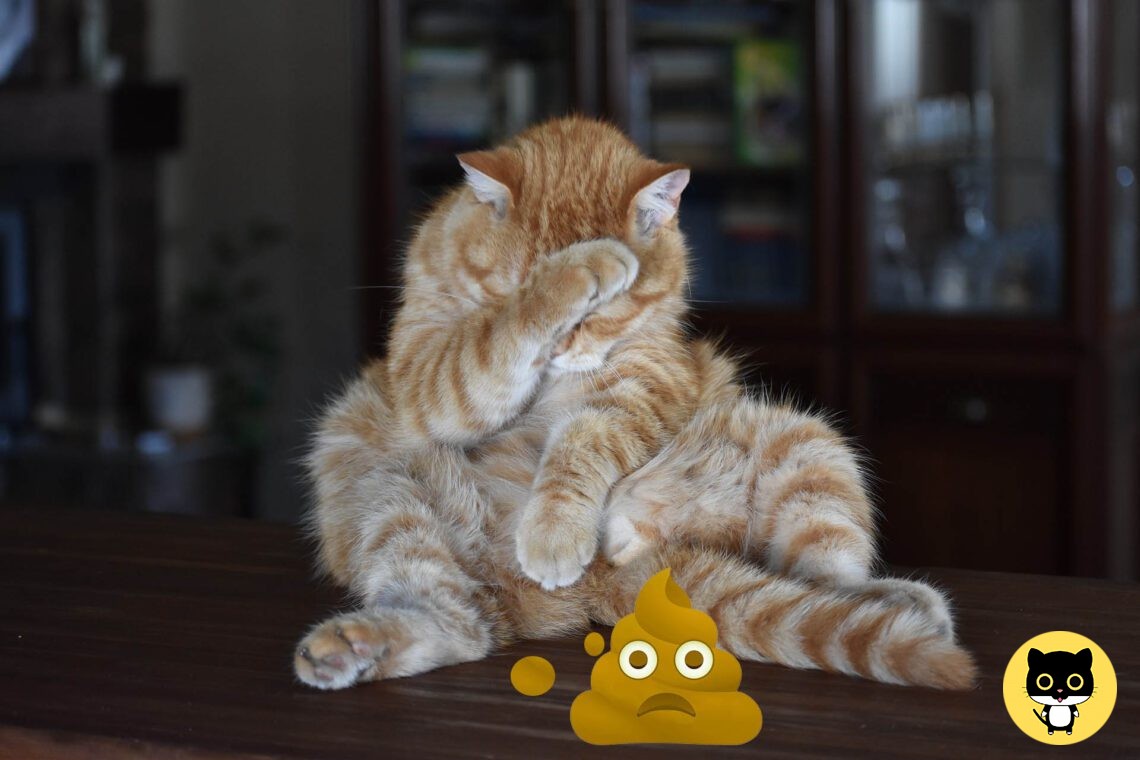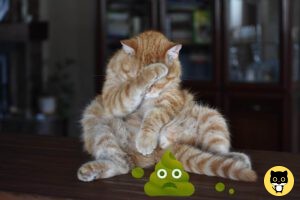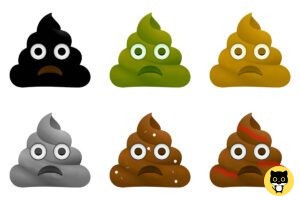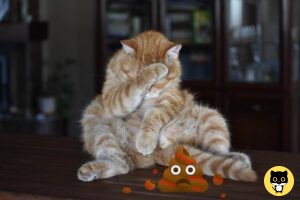As a responsible pet owner, it’s essential to pay attention to your cat’s overall health, and that includes monitoring their bowel movements. While it may not be the most pleasant topic, changes in your cat’s poop can provide valuable insights into their well-being (see cat poop color chart). In particular, if you notice your cat pooping yellow, it could indicate an underlying issue that requires attention. In this guide, we will explore the potential causes of yellow cat poop, when to be concerned, and steps you can take to ensure your feline friend’s health and happiness.
What is Normal Cat Poop?
Before delving into the specifics of yellow cat poop, it’s important to understand what constitutes normal cat feces. Typically, healthy cat poop is brown in color and has a firm but not overly hard consistency. It should be formed in small nuggets or longer sausages with a smooth surface. Normal cat poop frequency can vary from one to two times a day or every other day. Any significant changes in color or consistency should be noted and investigated further.
Deciphering Yellow Cat Poop: Causes and Concerns
Yellow cat poop, whether it’s a bright yellow hue, mustard-colored, or brownish-yellow, can indicate potential health problems. However, it’s crucial to remember that color alone doesn’t provide as much information as consistency does. Soft and yellow cat poop may have different implications than firm and yellow stool. Let’s explore some common causes and concerns associated with yellow cat poop.
Causes of Yellow Cat Poop
Yellow cat poop can stem from various factors, including digestive issues, liver or gallbladder problems, and pancreatic disorders. Let’s examine these causes in more detail:
- Digestive Issues: Poor nutrient absorption in the intestine due to parasites, viral infections, bacterial infections, and inflammation can lead to yellow cat poop.
- Liver and Gallbladder Issues: Yellow and oily cat poop may be associated with liver problems or gallbladder blockages. Liver disease, inflammation, and bile duct issues can contribute to yellow poop.
- Chronic Pancreatitis: Inflamed pancreas can cause changes in stool color, including yellowish tones. Pancreatitis is the most common pancreatic disorder in cats and can result in abdominal pain, weight loss, vomiting, and jaundice.
- Dietary Factors: Introducing new foods or treats, especially those containing ingredients like sweet potatoes or carrots, can cause temporary changes in stool color, including yellow poop. It’s important to consider recent dietary changes when evaluating yellow cat poop.
When to Be Concerned
While occasional yellowish stool may not be cause for immediate concern, certain signs should prompt you to seek veterinary attention. If your cat is experiencing persistent vomiting, loss of appetite, lethargy, or yellowing of the skin and eyes (jaundice), it’s crucial to consult with your veterinarian promptly. Additionally, if the yellow poop is accompanied by diarrhea, blood, or mucus, it may indicate an underlying health issue that requires medical intervention.
Diagnosing and Treating Yellow Cat Poop
When faced with yellow cat poop, it’s essential to work closely with your veterinarian to determine the underlying cause and appropriate treatment. Your vet will consider various factors such as your cat’s age, medical history, and current symptoms before making a diagnosis. Here are some steps you can take:
1. Veterinary Evaluation
Contact your veterinarian and provide them with essential information about your cat’s poop, including its color, consistency, and any accompanying symptoms. Your vet may ask questions about changes in appetite, behavior, recent diet adjustments, and your cat’s overall health history. Based on this information, they will determine the need for a physical examination or additional tests.
2. Stool Sample Analysis
In some cases, your veterinarian may request a stool sample to analyze for parasites, bacterial infections, or other abnormalities. Collect a fresh sample and bring it to your vet for thorough laboratory testing. This analysis can provide crucial insights into the underlying cause of the yellow poop.
3. Dietary Adjustments
Depending on the diagnosis, your vet may recommend dietary changes to address yellow cat poop. In cases of digestive issues or dietary allergies, a bland diet consisting of boiled chicken and rice may be beneficial. If the yellow poop persists despite dietary adjustments, consult with your vet for further guidance.
4. Medications and Supplements
In certain cases, your veterinarian may prescribe medications or supplements to address the underlying cause of yellow cat poop. Antibiotics, antiparasitic medications, and probiotics may be prescribed to combat infections or restore gut health. Follow your vet’s instructions carefully and monitor your cat’s response to the prescribed treatment.
5. Ongoing Monitoring and Follow-up Care
Regular monitoring of your cat’s poop and overall health is crucial after receiving treatment for yellow cat poop. Follow up with your veterinarian as recommended to ensure that the underlying issue is resolved and to address any potential ongoing concerns.
Preventing Yellow Cat Poop
While you may not have complete control over your cat’s health, there are steps you can take to promote digestive health and prevent yellow cat poop. Consider the following preventive measures:
-
Provide a Balanced Diet: Feed your cat a high-quality, well-balanced diet that meets their nutritional needs. Avoid sudden changes in the diet and ensure that their food is appropriate for their age and health requirements.
-
Gradual Diet Transitions: When introducing new foods or treats, do so gradually to allow your cat’s digestive system to adjust. Sudden dietary changes can disrupt their gut health and potentially lead to yellow poop.
-
Regular Veterinary Check-ups: Schedule regular veterinary visits to ensure your cat’s overall health and catch any potential issues early on. Your vet can provide guidance on proper nutrition, vaccinations, and preventive care.
-
Parasite Prevention: Follow your veterinarian’s recommendations for deworming and flea prevention to protect your cat from gastrointestinal parasites, which can contribute to yellow poop.
-
Stress Management: Minimize stressors in your cat’s environment as much as possible. Cats are sensitive animals, and stress can impact their digestive health. Provide a calm and stable environment to promote optimal gut function.
Please register to leave a reply below and to post in the Forums.






